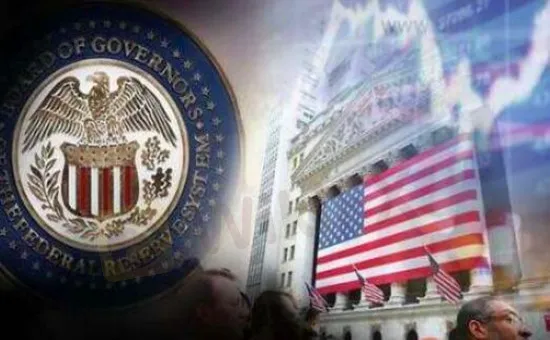简体中文
繁體中文
English
Pусский
日本語
ภาษาไทย
Tiếng Việt
Bahasa Indonesia
Español
हिन्दी
Filippiiniläinen
Français
Deutsch
Português
Türkçe
한국어
العربية
Fed Survey Finds Supply-Chain Shortages Boosting Inflation
Abstract:“There were wide-ranging input cost increases stemming from strong demand for raw materials, logistical challenges and labor market tightness,” the Fed's report, known as the beige book, said.

Many parts of the country were hit by supply chain disruptions and labor shortages in November, the Federal Reserve reported Wednesday.
In a survey of business conditions around the country, the Fed's 12 regional banks found that the economy continued to grow at a modest-to-moderate pace, and the outlook for future growth remains positive.
But some of the Fed's some business contacts expressed uncertainty about when the problems presented by supply chain bottlenecks and labor shortages might begin to ease. In part because of the supply chain problems, price increases were reported to be widespread across the economy.
“There were wide-ranging input cost increases stemming from strong demand for raw materials, logistical challenges and labor market tightness,” the Fed's report, known as the beige book, said.
The Fed survey, which is based on interviews with business contacts last month in all 12 of the Fed's regional bank districts, will form the basis for discussions when central bank officials hold their final meeting of the year on Dec. 14-15.
In congressional testimony this week, Federal Reserve Chairman Jerome Powell said the central bank is prepared to speed up the pace of the pullback of the easy-money policies it has been using to support the economy for the past 20 months.
The Fed had been buying $120 billion in Treasury bonds and mortgage-backed securities since the spring of 2020. At its meeting last month, the central bank announced that it would start to trim those purchases, which serve to keep long-term interest rates low, by $15 billion in November and another $15 billion in December.
Powell's comments this week indicated the Fed may announce at its December meeting that it will make larger monthly reductions in the future so that the bond purchases can be totally ended earlier than the June end-date which had been expected.
That would clear the way for the Fed to begin raising its benchmark interest rate, which was reduced to a record low of 0% to 0.25% in early 2020.
Both the ending of the bond purchases and the start of interest rate hikes would be expected to raise borrowing costs for consumers and businesses as a way to slow the economy and fight inflationary pressures.
Powell made his comments as inflation has surged to a three-decade high, largely because the pandemic has limited supplies at a time when the re-opening of the economy has led to high demand.
For more Forex news, please download WikiFX- the Global Forex Regulatory Inquiry APP.
Disclaimer:
The views in this article only represent the author's personal views, and do not constitute investment advice on this platform. This platform does not guarantee the accuracy, completeness and timeliness of the information in the article, and will not be liable for any loss caused by the use of or reliance on the information in the article.
Read more

FED meeting minutes strongly hint at a rate cut in September; US dollar index falls to new low this year!
The U.S. Bureau of Labor Statistics revised down the employment growth in the year ending in March by 818,000, an average monthly decrease of about 68,000, the largest downward revision since 2009. The substantial downward revision of employment data re-emphasized the severity and necessity of the U.S. employment problem, paving the way for a rate hike in September. Bearish for the U.S. dollar.

What new signals does the Federal Reserve have? FED Governor Michelle Bowman reiterates the risk of inflation!
Fed Governor Bowman: There are upside risks to inflation, the labor market continues to strengthen, and a cautious attitude will be maintained at the September meeting. Boston Fed President Collins: If the data is as expected, it would be appropriate to start easing policy "soon". Inflationary pressure will slow down the pace of U.S. interest rate cuts, which will be bullish for the dollar.

GEMFOREX - weekly analysis
The week ahead: Traders on the backfoot ahead of a quiet week

Twin Scam Alert: Broker Capitals is a New Domain of Finex Stock
This week, the Italy financial regulator CONSOB issued a warning against an unlicensed broker named Broker Capitals. When we clicked on Broker Capitals' website, its logo, trade name, and design seemed familiar to us.
WikiFX Broker
Latest News
Geopolitical Events: What They Are & Their Impact?
Top 10 Trading Indicators Every Forex Trader Should Know
Why Do You Feel Scared During Trade Execution?
Currency Calculator


